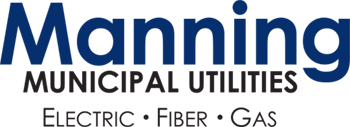
Natural Gas Do's and Don'ts
Learn how to recognize signs of a natural gas leak
Pipes or appliances powered by natural gas can develop leaks, which can have potentially negative effects. It’s important to be able to identify natural gas leak symptoms and to know what to do if you have a gas leak. If you detect any of the following signs of a natural gas leak in your house, contact 911 immediately.
The smell of rotten eggs. In its natural state, natural gas is odorless and colorless. To make gas leaks easier to detect, gas companies add chemicals called odorants to create a natural gas smell similar to sulphur or rotting eggs. The stronger this smell, the more likely it is that you have a leak.
Hissing sounds. Large gas leaks in pipes or appliances may produce hissing noises, even if the appliance is turned off. Check pipes and appliances regularly, listening for any hissing noises.
Air bubbles outside your home. Natural gas leaks can also occur in underground piping outside the home. If you see bubbles in standing water—including puddles and mud—it may be a sign of natural gas dispersing through the soil and into the surrounding air.
Dead or dying plants. Dead, dying or stunted plants inside or outside your home can be a potential sign of a natural gas leak, especially if you’ve been taking proper care of your plants. The presence of natural gas prevents a plant’s roots from absorbing oxygen and can lead to wilting. Natural gas leaks can also cause smaller-than-normal leaves on trees, wilted plants and yellowish patches of grass.
Physical symptoms of natural gas poisoning. Breathing in low levels of natural gas can cause headaches, dizziness, fatigue, nausea and irregular breathing. High levels of natural gas exposure can cause natural gas poisoning, which is characterized by fatigue, severe headaches, memory problems, loss of concentration, nausea, loss of consciousness, and suffocation. If you believe you’re experiencing natural gas leak symptoms, contact a healthcare professional as soon as possible.
Higher-than-normal gas usage. An increase in the amount of natural gas your home uses can indicate a natural gas leak. Seasonal increases in natural gas use is to be expected when using a gas furnace, but unexplained increases might suggest a leak somewhere in or around your home.
Inspect devices and appliances that use natural gas on a regular basis
Regularly inspecting all devices and appliances that use gas helps prevent and identify possible gas leaks. Read the manufacturer’s instructions for each appliance to understand what to check and how often for safe use.
Common gas-powered appliances include furnaces, water heaters and stoves. Most of these appliances have a pilot light, and that’s something for you to check as well. If the appliance has a pilot light, the flame should be small and blue with a yellow tip. Please contact the appliance’s manufacturer if you suspect something is wrong with an appliance that has an abnormal or missing pilot light.
Keep small children away from sources of natural gas
Keep small children away from stoves, heaters and other potential sources of natural gas. Teach children how to spot and identify the distinctive natural gas smell, and make sure they know what to do if they think there’s a natural gas leak in the house.
Install natural gas and carbon monoxide detectors in your home
Slow gas leaks may not produce enough natural gas smell to be detectable, and even large leaks may not be detected by people with a diminished sense of smell. For these reasons, it is recommended that homeowners use a natural gas detector to alert them to the presence of natural gas.
Carbon monoxide detectors do not detect natural gas leaks but can alert you when appliances improperly burn natural gas, kerosene or other fossil fuels. For extra safety, consider installing a carbon monoxide alarm.
What to Do If You Have a Natural Gas Leak
Knowing what to do in a gas leak is as important as identifying a leak. If you suspect you’re dealing with a gas leak, take the following steps:
Evacuate the premises. Everyone in the home should leave the building immediately and regroup at a pre-chosen safe place. This limits your exposure to the gas and puts distance between you and the home in case the gas leak ignites.
Leave the doors and windows open. On your way out of the home, open all doors and windows. This allows natural gas to vent outdoors.
Call for help. As soon as everyone is outside and a safe distance from the home, call for help.
811: Call before you dig
Before landscaping or excavating, call 811 to make sure you won’t accidentally disturb gas lines as you dig. Rupturing a gas line with a shovel or heavy equipment can have serious consequences, including large-scale explosions.
What NOT to Do When You Suspect a Leak
Knowing what not to do in a gas leak situation is just as important as knowing what to do. If you suspect your home has a gas leak, there are steps you definitely should not take:
Do not search for the source of the leak. Searching for the cause of a gas leak exposes you to the gas, with potentially dangerous results. Leave leak detection to the experts.
Do not try to repair the leak on your own. Always contact a professional. Attempting a DIY repair without a professional could place you at risk.
Do not use electronics inside the house. This includes cell phones, telephones, light switches or electronic devices with batteries. Any use of electricity can trigger a spark that may ignite the leaked natural gas.
Do not stay indoors. Evacuate as soon as you can.
Do not keep windows and doors closed. This allows natural gas to build up and accumulate, and could make the situation worse.
Do not fail to report the situation. Play it safe, and contact professionals whenever you suspect a leak.
Do not use matches or lighters. Avoid any open flames, which can ignite natural gas. Explosions caused by the ignition of accumulated natural gas can level a home.
Manning Municipal Utilities
321 Center Street
Manning, Iowa 51455
Mon-Fri 8 a.m. to 4:30 p.m.
Office Telephone
712-655-3905
Search our website
© 2023 Manning Municipal Utilities

